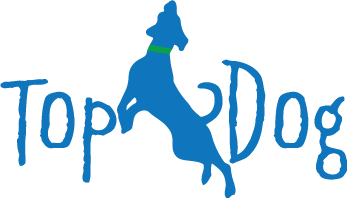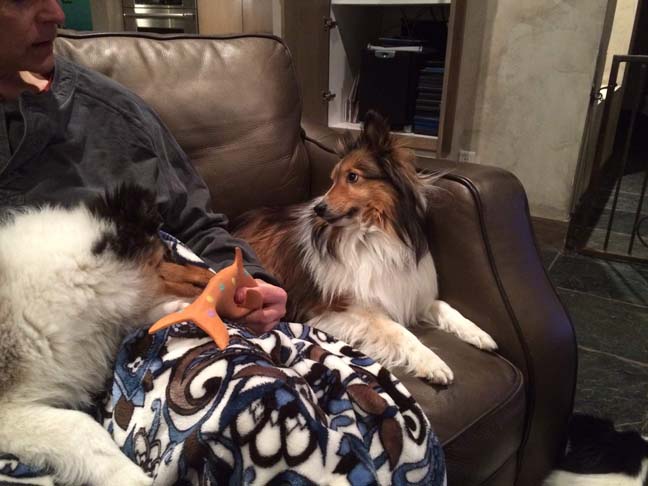Jealousy over toys . . . over food . . . or attention???
jeal·ous·y
noun
According to Wikipedia; jealousy is the protective reaction to a perceived threat to a valued relationship.
Is it just resource guarding or are we furry kids really capable of an emotion like jealousy? Science has said “no”, we are not.
Personally I think most of you humans sell us dogs far too short. My mom believes that dogs are capable of feeling more complex emotions than people think; and my day-to-day experience living in a pack of 8-12 dogs, going to our Minnesota dog boarding facility, Top Dog Country Club, with new dogs coming and going all the time, is all the evidence I need, to know that we can feel jealous.
Mom recently added a new puppy Stormy to an adult-dog household . . . and as you can imagine the rest of us have a thing or two to say about it . . . more than the normal guests coming and going; as she is in that super cute, cuddly, attention-hog stage. Rebel, who was the “baby” of the family before along with his littermate Chaos; is particularly disgusted with this new fuzzy thing that is getting so much attention.
He will pout and glare at mom when she is snuggling and playing with Stormy. If looks could kill . . . my mom would be dead . . . I am certain of it. Then Rebel moves in for attention and claims his spot next to mom but with an air of “attitude” . . . just to ensure that she understands his disappointment.
Mom recently stumbled upon some new research that supports these thoughts that dogs experience jealousy.
Dr. Christine Harris, an emotion researcher at UC San Diego, got the idea for a study after playing with her parents' three border collies. The study took 36 dogs and observed the reaction to their owner playing with a stuffed dog that barked, an orange pail and an interactive story book. 72 percent of the dogs expressed jealous behavior (snapping at the object or pushing or touching the owner) while far fewer reacted to playing with the pail or the book.
The study finds that social interaction is one of the key stimuli for canine jealousy, as the moving and vocalizing object caused the canine subjects to show jealous behaviors more so than the inanimate objects. “I find it quite intriguing that 86 percent of the participating dogs approached the rear-end of the animatronic version to sniff around the anus, as they would do when interacting with real dogs”, says Dr. Harris. “The real dogs showed behaviors consistent with jealousy by preventing the animatronic dog's access to their owners and barking and biting at the robotic canine.”
The study concluded that dogs have the neurobiological cognitive capacity for jealousy.
http://journals.plos.org/plosone/article?id=10.1371/journal.pone.0094597


